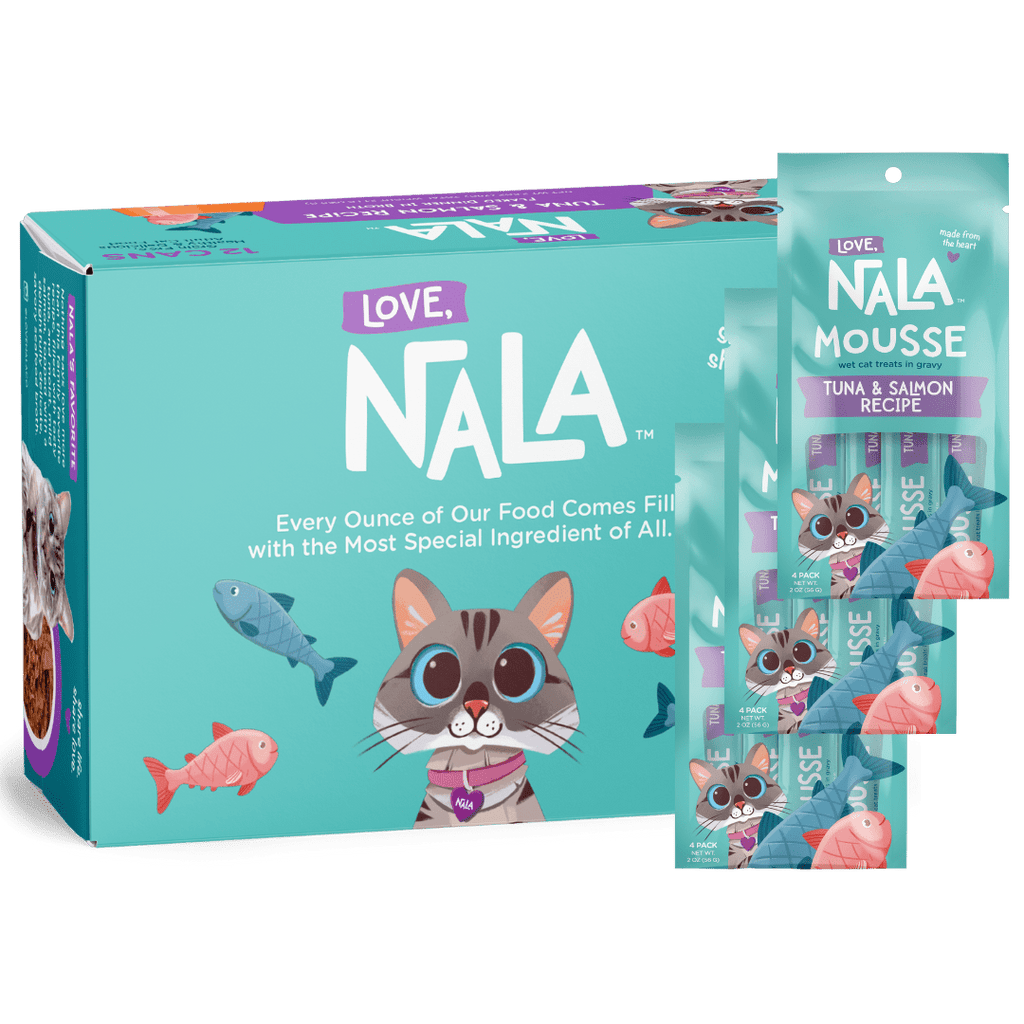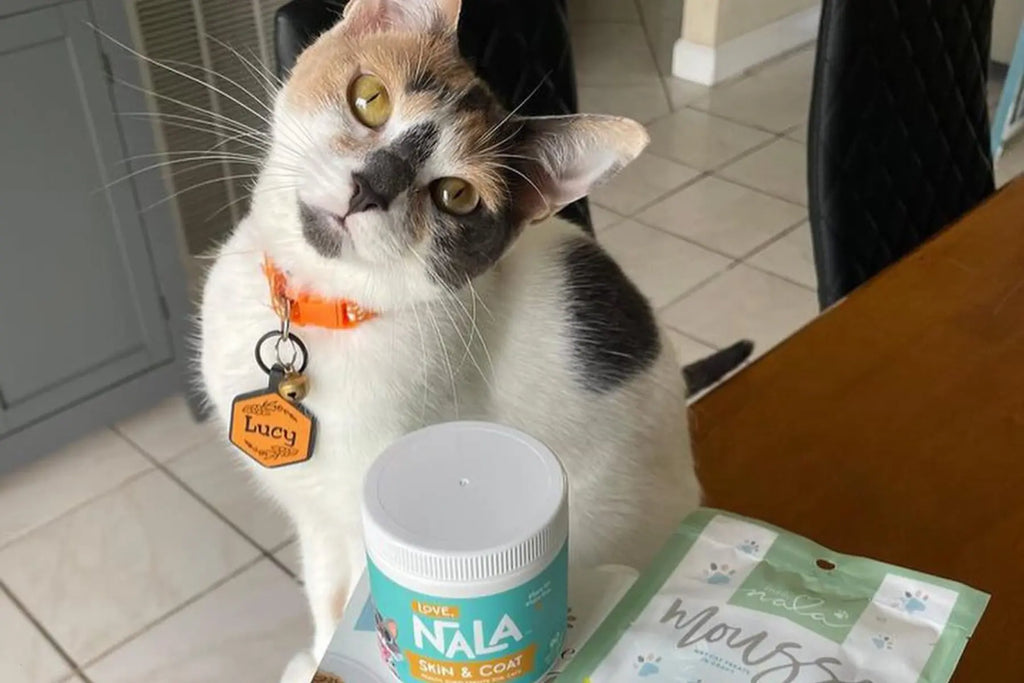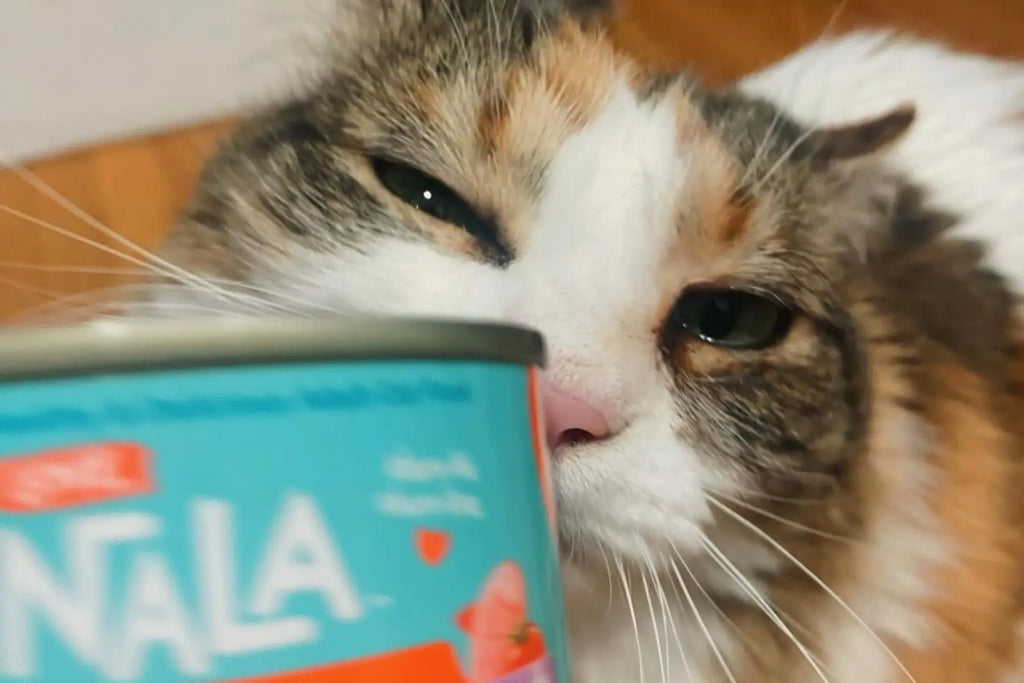Cat owners often strive to provide the best possible nutrition for their feline companions. One option growing in popularity is grain-free natural cat food, particularly for cats with sensitivities. This article delves into the details of this cat food for sensitive cats, discussing the benefits and helping you make an informed decision for your furry friend.

Understanding Cat Sensitivities
Cats with sensitivities usually experience food allergies or dietary intolerances. Food allergies involve the immune system reacting to specific proteins, while intolerances are associated with difficulties in digesting certain ingredients.
Gastrointestinal Issues
Gastrointestinal issues such as vomiting, diarrhea, and gas in cats can often be a signal of food sensitivity or intolerance. These symptoms indicate that your cat may be reacting negatively to certain ingredients in their diet. It's crucial to monitor what your cat eats and how it affects their digestion. Ingredients commonly associated with gastrointestinal upset in cats include certain grains, fillers, and sometimes even proteins that are not suited to your cat's digestive system. If symptoms persist, it is advisable to consult a veterinarian who may recommend a switch to a hypoallergenic or limited-ingredient diet. These specialized diets often eliminate common allergens and use novel protein sources or hydrolyzed proteins that are easier for cats to digest.
Additionally, probiotics might be suggested to help stabilize your cat’s digestive flora, improving gastrointestinal health. It's important to transition your cat slowly to new foods to allow their digestive system to adjust without additional stress. Keep a detailed food diary during this transition period to track what ingredients might be causing issues, which can be invaluable for the long-term management of your cat's health.
Skin Irritations
Cats suffering from skin irritations such as itchy skin, excessive scratching, or hair loss may be exhibiting signs of an allergic reaction to components in their food. These skin conditions can be uncomfortable for your cat and are often caused by food allergies or sensitivities, particularly to certain proteins or additives found in many commercial cat foods. Identifying the allergen can be challenging and usually involves implementing an elimination diet where ingredients are removed and reintroduced systematically to pinpoint the cause. Veterinarians may suggest a diet that uses novel or hydrolyzed proteins which the cat's immune system has not been exposed to, reducing the likelihood of an allergic reaction. Apart from dietary changes, supplements like omega-3 fatty acids might be recommended to help improve skin health and reduce inflammatory responses.
Behavioral Changes
When a cat experiences dietary issues, its behavior often changes noticeably, serving as a crucial signal to owners that their pet's health may be compromised. Typical signs of dietary distress in cats include reduced activity levels, increased withdrawal from social interactions, and irritability, especially when being handled. These behavioral changes can suggest that the cat’s current diet is either nutritionally inadequate or causing physical discomfort. These changes are important signals that should not be ignored, as they can indicate that the cat’s diet is not meeting its health needs or is causing discomfort. A diet that is too rich, high in fillers, or contains allergens can lead to such discomfort. If the diet is the culprit, a veterinarian might suggest nutritional adjustments or a special therapeutic diet formulated to address the specific health issues. It's important to observe how your cat's behavior changes with dietary adjustments, as this can be a good indicator of whether the new diet is effective in alleviating the discomfort.
Grain-Free Natural Cat Food: Ingredients and Benefits
It offers an alternative to traditional cat food that may contain grains. Both dry cat food and wet cat food as well as treats can be grain-free. Generally, most grain-free cat foods contain fewer carbohydrates and more meat protein than traditional foods. Some of the key ingredients of this type of food include:
- High-Quality Protein Sources: In grain-free cat food, meat, fish, and poultry serve as the cornerstone ingredients, providing essential amino acids crucial for muscle maintenance and overall health. This type of healthy cat food typically contains a higher proportion of animal-based proteins than grain-inclusive varieties, making it particularly suitable for carnivorous pets that thrive on meat. The increased protein content supports everything from a cat’s muscular development to its fur and skin health, aligning closely with their natural dietary needs.
- Alternative Carbohydrates: It often incorporates non-grain carbohydrates such as potatoes, peas, or lentils. These alternatives not only serve as a source of energy but also contribute fiber and essential nutrients. The inclusion of such ingredients ensures that the cat's food is balanced and digestible while still providing the necessary energy without the grains. This can be particularly beneficial for cats with grain allergies or sensitivities, as it minimizes the risk of adverse reactions while maintaining an optimal nutritional profile.
- Essential Vitamins and Minerals: Nutritionally, grain-free cat food is formulated to be complete and balanced, supplying all the necessary vitamins and minerals a cat needs to thrive. This includes a wide range of nutrients like vitamin A for eye health, taurine for heart health, and calcium for strong bones. By incorporating a variety of meat sources and alternative carbohydrates, these foods ensure that cats receive a spectrum of nutrients essential for maintaining optimal health and preventing nutrient deficiencies.
By focusing on high-quality protein sources, alternative carbohydrates, and a full spectrum of vitamins and minerals, this type of food supports the health and well-being of cats, providing a viable and often beneficial alternative to traditional grain-based foods.

Benefits Of Feeding Grain-Free Natural Cat Food
Reduced Risk Of Food Allergies
Grain-free cat food excludes common allergens such as wheat, corn, and soy, which are known to provoke adverse reactions in some cats. This dietary choice is particularly beneficial for felines with specific sensitivities, as it significantly reduces the chances of an allergic response. The absence of these grains not only helps in avoiding the immediate symptoms associated with food allergies, like itching and gastrointestinal distress but also contributes to long-term health and comfort. By aligning the diet closer to a cat's natural carnivorous preferences, owners can ensure their pets are less likely to suffer from unnecessary allergic reactions, thus enhancing the quality of life for their feline companions.
Improved Digestion
Since cats are obligate carnivores, their bodies are naturally equipped to digest meat rather than plant-based proteins such as grains. These diets cater to this biological requirement by focusing on animal-based proteins, which are easier for cats to break down and absorb. This can lead to a marked improvement in digestion and a noticeable reduction in digestive disturbances like gas, bloating, or diarrhea. By minimizing the intake of non-essential fillers and grains, grain-free cat food supports more efficient nutrient absorption, helping cats maintain optimal digestive health while satisfying their instinctual dietary preferences.
Healthier Skin And Coat
Grain-free cat food can significantly impact the condition of a cat's skin and coat, particularly for those with grain sensitivities. Removing grains from the diet helps to eliminate the source of irritation that can lead to skin problems and dull coats. Grain-free formulas are often rich in essential fatty acids and high-quality proteins, which are vital for the maintenance of healthy, resilient skin and a glossy, vibrant coat. This diet supports not only the external appearance of cats but also their internal health, as a good coat is often a reflection of overall well-being.
Increased Energy Levels
The higher protein content in grain-free cat food mirrors the natural diet of wild cats and provides a more suitable energy source for domestic cats. This increase in protein helps to enhance muscle tone and supports sustained energy release throughout the day, contributing to higher activity levels and greater vitality. This diet can be particularly beneficial for younger or more active cats who require abundant energy for growth and daily activities. Owners might notice their cats becoming more playful and energetic, which is a positive sign of good health and proper nutrition.
Better Weight Management
This food typically offers a higher proportion of protein and lower carbohydrates, which aligns well with a cat's natural eating habits and helps in maintaining a healthy weight. The satiety derived from a protein-rich diet can curb overeating by making cats feel fuller for longer periods. This can prevent obesity, which is a common health issue among domestic cats. The lower carbohydrate content reduces the risk of diabetes and contributes to overall metabolic health, allowing cats to enjoy a leaner body mass and a better quality of life.
Reduced Risk Of Certain Health Issues
As emphasized before, it can play a crucial role in preventing or managing health issues such as diabetes in cats by providing a lower carbohydrate content. This type of diet helps stabilize blood sugar levels and reduces the strain on the cat's insulin response. Besides mitigating the risk of diabetes, grain-free food also promotes better weight management and reduces the likelihood of food allergies, collectively enhancing the overall health profile of cats. Such dietary choices can lead to fewer veterinary visits and a more vibrant, disease-free life for your feline friend.
Selecting the Right Grain-Free Natural Cat Food
When choosing the right grain-free natural cat food for your pet, several factors must be taken into account to ensure that your cat not only enjoys its meals but also receives all the necessary nutritional benefits. This decision can significantly impact your cat’s overall health and vitality. Here are the key considerations:
- Quality of Ingredients Look for products that use real meat, fish, or poultry as their primary protein sources. Avoid those containing artificial preservatives, colors, or flavors, as these can be harmful to your cat's health. The quality of the ingredients directly affects the digestibility and nutritional value of the food, ensuring that your cat gets the maximum benefit from each meal.
- Nutritional Balance Ensuring that the grain-free cat food you choose offers a balanced diet is essential. The ideal cat food should have a good mix of protein, fat, and essential nutrients like vitamins and minerals to support overall health. Check the food label for a statement from the Association of American Feed Control Officials (AAFCO), which confirms that the food is formulated to meet established nutritional levels for cats. This balance helps support bodily functions, growth, and maintenance.
- Cat’s Age, Activity Level, and Health The specific needs of your cat should guide your choice of grain-free cat food. Kittens, adult cats, and seniors have different nutritional requirements. Similarly, a highly active cat will need a different calorie intake compared to a more sedentary one. If your cat has health issues such as kidney disease or obesity, specialized diets that cater to these conditions may be necessary.
It takes more than simply reading labels to get the right grain-free cat food; you also need to be aware of your cat's specific health and dietary requirements. You can make sure your cat has a happy, healthy, and active life by selecting a food that considers these characteristics.

Grain-free natural cat food can be an excellent option for cats with sensitivities, offering numerous benefits such as the reduced risk of food allergies, improved digestion, and healthier skin and coat. When selecting the right food for your cat, consider factors such as ingredient quality, nutritional balance, and your cat's individual needs. Always consult with a veterinarian before making any significant dietary changes and monitor your cat's health during the transition process. With the right food for cats with sensitivities, you can help them enjoy a healthier, happier life.




















